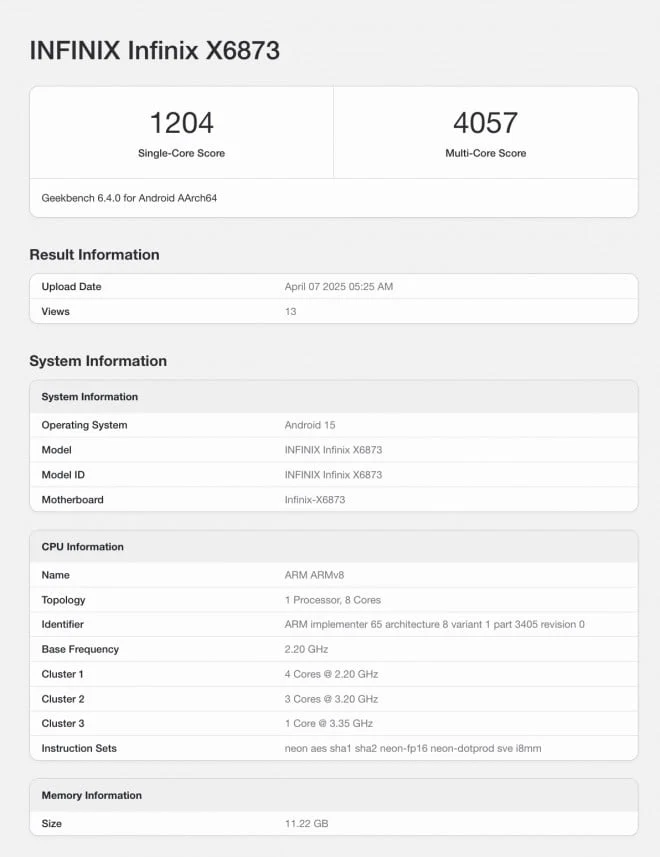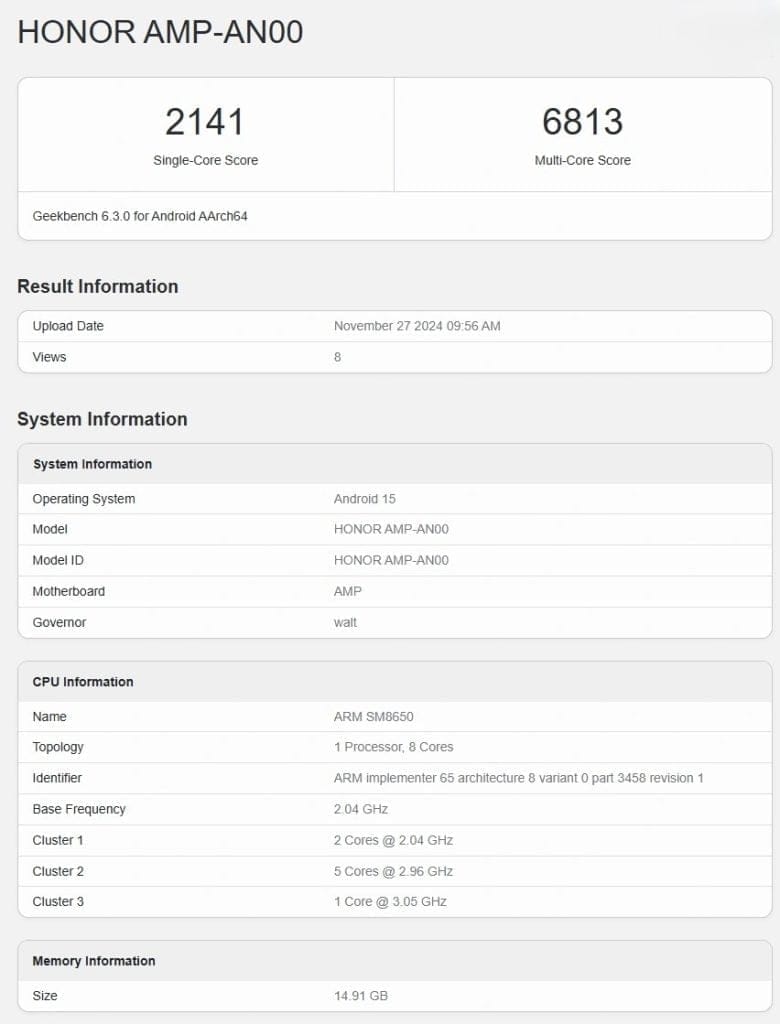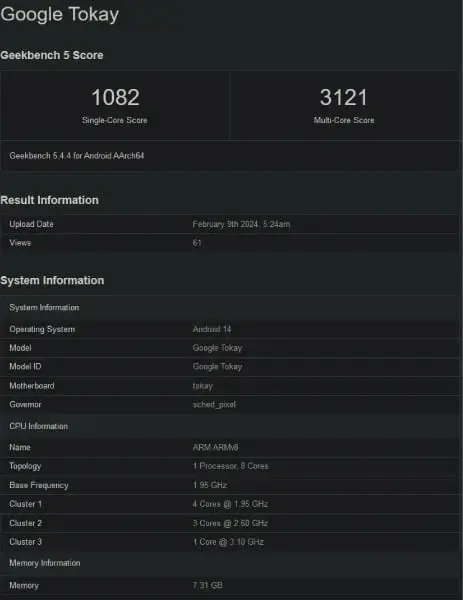Key Takeaways
1. The Infinix GT 30 Pro appears to have lower single-core performance compared to the GT 20 Pro, with scores of 1204 vs. 1248 in Geekbench tests.
2. The device is still in development, and its benchmark scores may change as performance tweaks are tested.
3. The GT 30 Pro is expected to feature the Dimensity 8350 chip and improved clock speeds.
4. Anticipated enhancements include a 1.5K display, UFS 4.0 storage, and an 8MP ultrawide camera.
5. The GT 30 Pro will come pre-installed with Android 15.
Infinix has introduced the GT 20 Pro (review) as a mid-range device focused on performance, featuring “flagship-level” specs back in April of the previous year. Recently, the rumored Infinix GT 30 Pro (model number X6873) showed up in a Geekbench CPU test listing. This device was earlier detected in the IMEI database with the same model number.
Performance Insights
Initially, the GT 30 Pro was anticipated to deliver significant performance enhancements, but the Geekbench results, unfortunately, indicate a different story. The device achieved scores of 1204 for single-core and 4057 for multi-core tests. For comparison, the previous model, the GT 20 Pro, scored 1248 and 3672 on the same benchmark. Even though the newer model has a slightly better multi-core score, its single-core performance falls short when compared to the GT 20 Pro.
Development Stage
It’s important to mention that the phone is likely still in its development phase, with the manufacturer probably testing various performance tweaks, which could account for the less-than-stellar benchmark scores. Earlier leaks suggested that the phone might incorporate the Dimensity 8350 chip, and the clock speeds—1×3.35GHz + 3×3.2GHz + 4×2.20GHz—support this information.
Comparisons and Expectations
For reference, the GT 20 Pro utilizes the Dimensity 8200 Ultimate (1×3.1 GHz Cortex-A78 & 3×3.0 GHz Cortex-A78 & 4×2.0 GHz Cortex-A55) processor, combined with options of 8GB or 12GB RAM and 256GB of storage.
In terms of other features, the GT 30 Pro is anticipated to come with a 1.5K display, improving upon the 1080p screen of its predecessor. The new chipset might also be paired with UFS 4.0 storage, a step up from the UFS 3.1 storage found in the GT 20 Pro. Additionally, the upcoming model could include an 8MP ultrawide camera, which might not seem impressive, but it’s worth noting that the GT 20 Pro only had 2MP macro and depth cameras alongside its 108MP main camera.
Conclusion
Lastly, the Geekbench listing verifies that the GT 30 Pro will come pre-installed with Android 15.
Source:
Link








